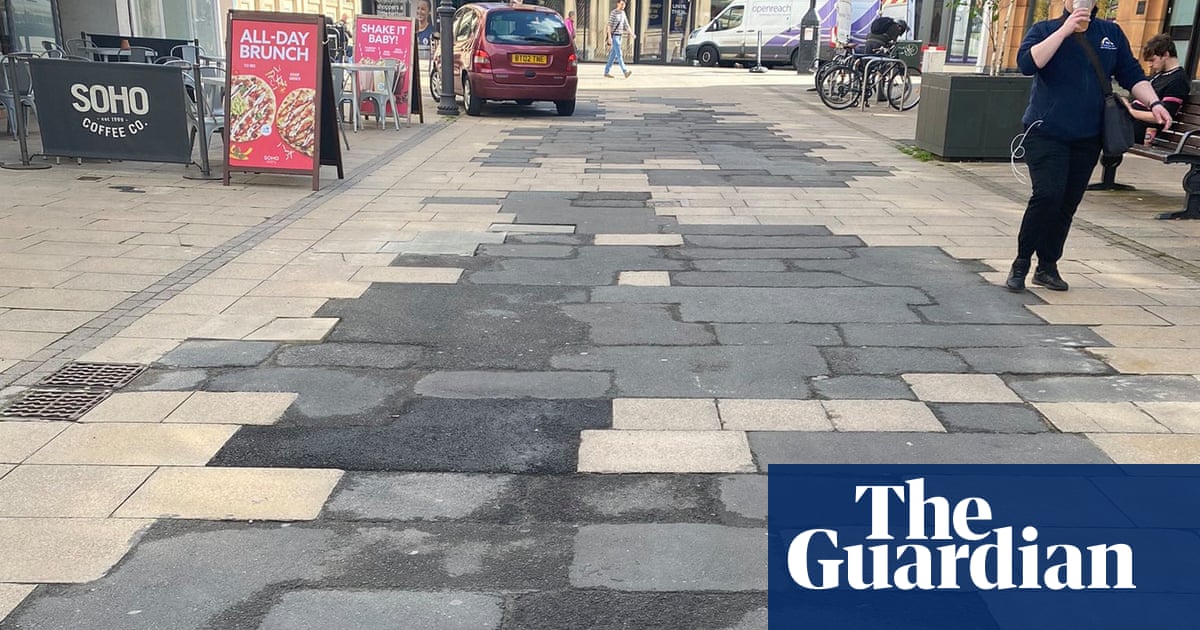A not uncommon sight in the UK. Councils spend huge sums of tax payers money to regenerate urban areas including stone/concrete paved pedestrianised areas. A few weeks later gas, telecom or electricity companies do this.
The worst is when they dig up stone cobbled streets that are hundreds of years old and refill with tarmac.
This really grinds my gears!
One of the things they do that really drives me nuts is when they dig up a junction with road markings, when they tarmac over the bit they dug up they then repaint the white lines, but ONLY on the tiny strip they dug up, leaving the rest of the old faded lines with just one patch of bright white paint on it. Looks ridiculous. Seriously they can’t repaint the entire line!?
I don’t even understand how you end up with tarmac instead of pavement in the type of street pictured in the illustration. I mean isn’t it just faster and easier to put the block of pavement back into the hole it left once you’re done ??
It sounds like it’s faster, easier and cheaper to just dump asphalt and pay the fine.
Those who fail to restore the road to its previous state are only liable for a fine of up to £2,500. Boys Smith said: “This is clearly monstrously insufficient for the size of the firms involved and is not working.”
I’d bet on a proper fix costing a lot more than the £2,500 fine. More and more, it seems like the authors behind the EU’s GDPR had proper fine structures figured out. Make the fine some percentage of the company’s global annual revenue and suddenly they sit up and listen.
This is the best summary I could come up with:
Telecoms and water companies are creating “street scars” in a “wasteful process” that is marring British high streets, Nicholas Boys Smith, who chairs the Office for Place in the Department for Levelling Up, Housing and Communities has said in a report.
He added that since 1984, Ofcom had allowed new cable companies to have licences that give them the status of statutory undertaker.
Utility firms have six months to repair their damage and face risibly small fines for non-compliance.
He also blamed the proliferation of roadworks and a “culture of not caring” about turning a neatly paved road into an ugly mess.
“The teams carrying out the work are simply employed, trained, resourced and rushed to such a point that they either cannot, do not or are not asked to do a proper job.
Splodges of tarmac on the street for months or years are a choice, not an obligation,” Boys Smith added.
The original article contains 471 words, the summary contains 153 words. Saved 68%. I’m a bot and I’m open source!



